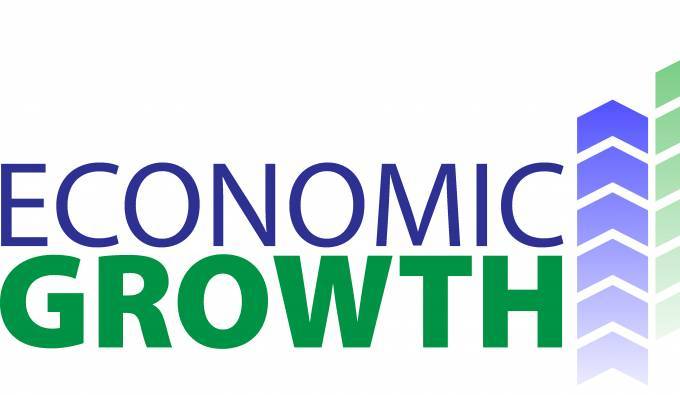
eBusiness Weekly

Isaah Mhlanga
There is a consensus on what is required to revive South Africa’s economic growth across business, labour, the public sector, civil society, and political parties.
All sectors agree on an infrastructure-led economic growth as a necessary condition for solving the triple challenges of unemployment, poverty and inequality.
There is also an agreement on the overdue need for fundamental transformation. Yet there seems to be no common view on what this exactly entails and how to effect it. Hence, the obvious divergence on how many roles the state must play in the post-Covid-19 economic setup.
The private sector largely takes the achievement of economic growth to automatically translate into transformation through employment creation.
This is shown through the Business for South Africa (B4SA) report, which suggests that business is the primary contributor to the economy while government’s job is to create a conducive environment through establishing an enabling regulatory environment.
The Covid-19 pandemic has put the ideal that large governments are bad for economic growth on trial, and so far that idea seems guilty of being misrepresented.
The eminent economist, Mariana Mazzucato, a member of President Ramaphosa’s Economic Advisory Council and advisor to several other governments, recently shared on Twitter her New York Times column titled “We Socialise Bailout. We should Socialise Successes, Too”.
I couldn’t help it but immediately think of the policy response to the coronavirus here at home, and the common view that Government’s lane must be confined to creating a conducive regulatory environment for the private sector to thrive.
If the private sector thrives, jobs will be created and poverty, unemployment and inequality will be reduced, so the narrative goes.
For some reason, the policymakers continue to be persuaded to this idea to which they concede, so much that some have even gone as far as saying that their view is that the state must play a bigger role in directing the economy and not necessarily running it.
To be sure, the African National Congress’ discussion document says that Covid-19 has legitimised a greater and more active role of the state in guiding the economy.
Guiding the economy, not driving it. This is what B4SA advocates for: the state must guide but not drive economic growth. This position should be re-looked at for several reasons.
First, the trickle-down narrative to economic transformation has not worked since the dawn of democracy. Unemployment has remained stubbornly high and poverty levels have gone up, although the economy has grown.
What’s more, income and wealth inequality has widened. The private sector, which is primarily the source income earned by workers, has failed to ensure a more equitable pay across gender and race. A 2019 Stats SA Inequality Trends In South Africa report showed that labour income contributes to 85 percent of income inequality. Consequently, the creation of wealth has followed similar trends to income dynamics. The role of correcting this structural flow in the economy can no longer be left to the private sector, as the record from the past two decades shows it is incapable of correcting its pay practices.
Secondly, as Mazzucato points out, during times of crisis, policy is usually designed to alleviate the impact of shocks but unintentionally or perhaps by omission, losses are socialised while gains are privatised during good economic performance times. To rectify this, Mazzucato proposes a citizen’s dividend that would accrue to society out of the support provided to the private sector.
A more active role
Thirdly and more importantly, in both the 2008 global financial crisis and now in the ongoing coronavirus pandemic, governments came to the rescue of corporates, households and individuals. Mazzucato argues that while the government is called upon to the rescue, they are usually relegated to guiding the economy through boom years.
Surely if governments can steer economies out of recessions and crises, they can drive growth and development during the recovery phases.
The binding constraint, according to a 2017 study by economist Ed Dolan, is not the size of government, as I believed when I was an undergraduate and as the critics of big government argue; it is the quality of government and its spending that is most crucial. Dolan finds that large governments are usually associated with a higher quality of institutions and administration, which creates an ample operating environment for private businesses to operate.
In the South African case, what needs to change is the quality of spending, not necessarily the size of government.
If, for instance, the large bloated public sector were to reduce with the savings deployed in funding research or infrastructure investment, the result will be far better than what we currently have.
Lastly, the idea that investment in public infrastructure and education is a cost needs to be done away with, for without these the private sector will not function efficiently, if at all.
A better way to characterise this spending should be adopted, and perhaps even the private sector will approach its investment in public infrastructure differently.
When all is said and done, it’s not the size of government but the quality of its manpower, institutions and capital allocation that matters. The state’s incapacity has been widely recognised, but how do we create this capacity?
One senior citizen suggested looking at Asia, in particular Hong Kong, where new laws from mainland China are pushing their citizens out. They are dynamic, entrepreneurial and critically skilled, which is what South Africa lacks.
This article first appeared on Fin24. Mhlanga is executive chief economist at Alexander Forbes. Views expressed are his own.



